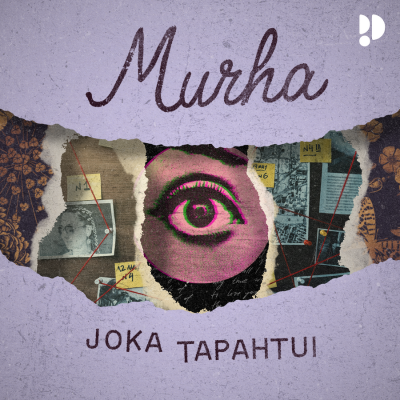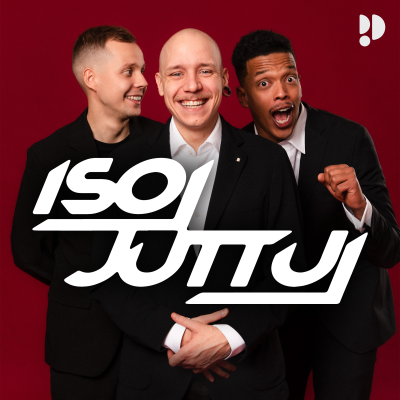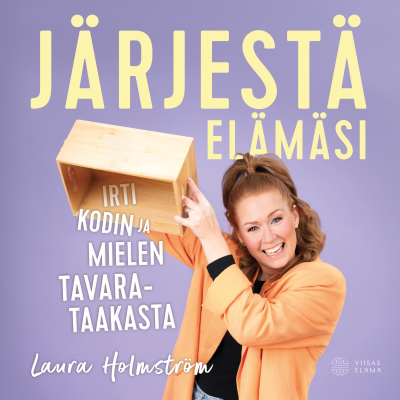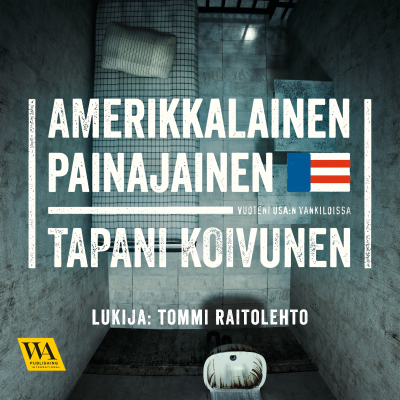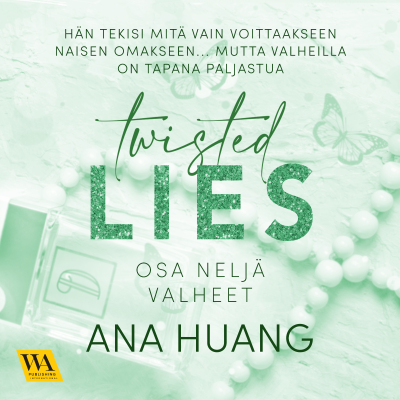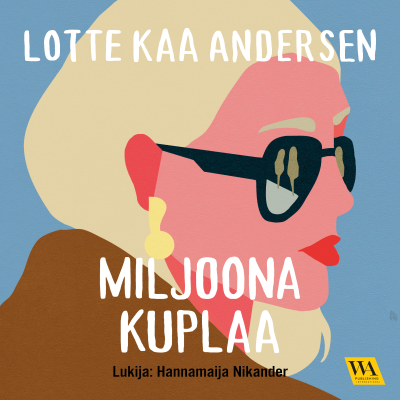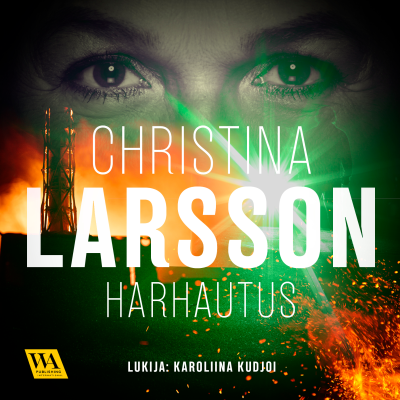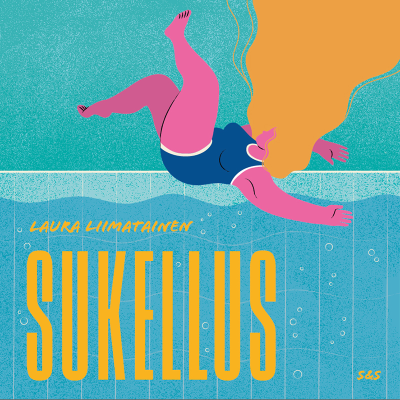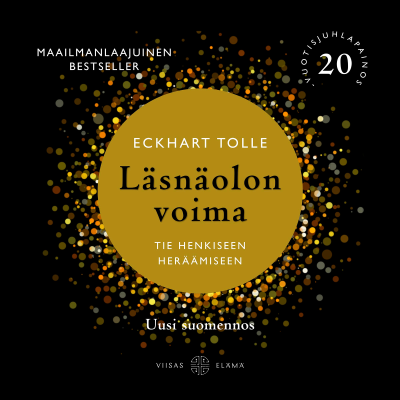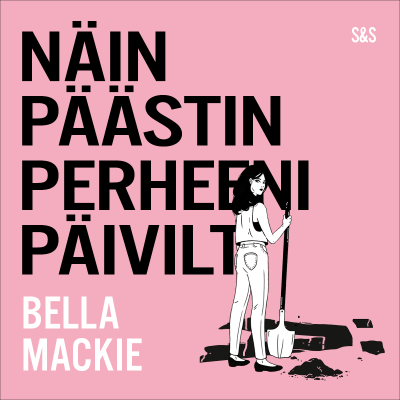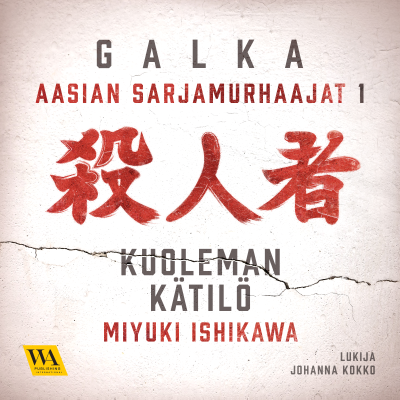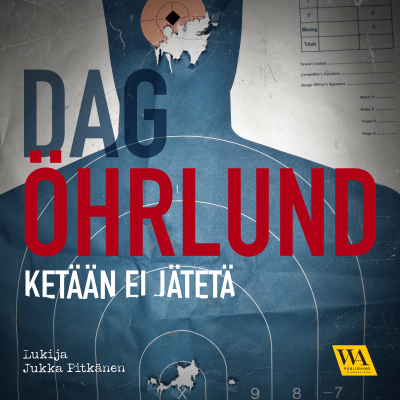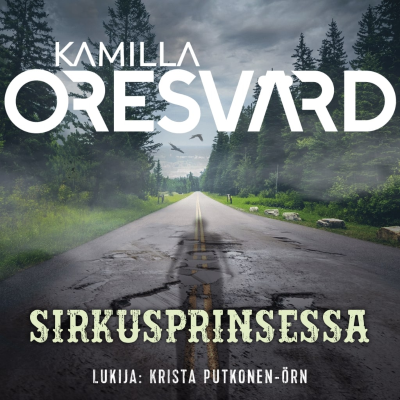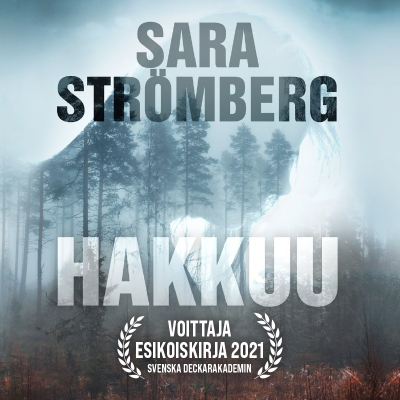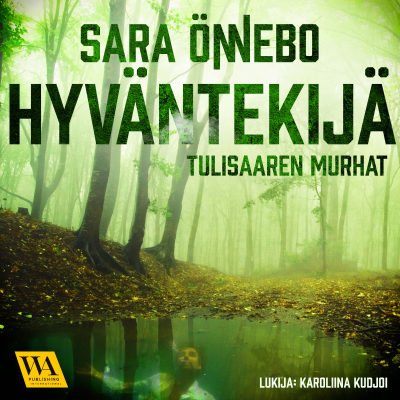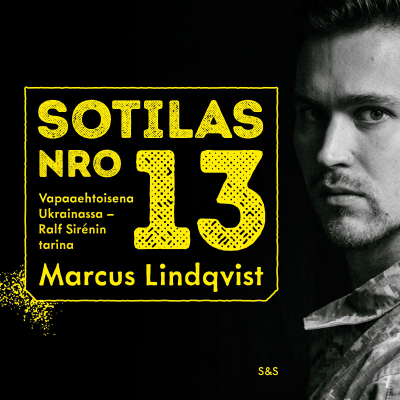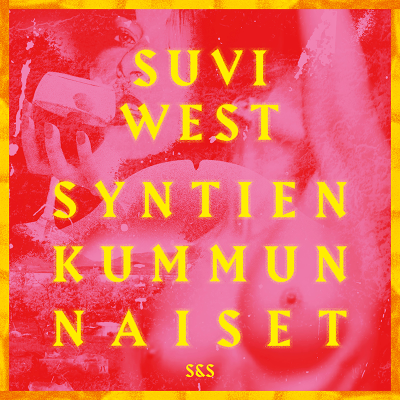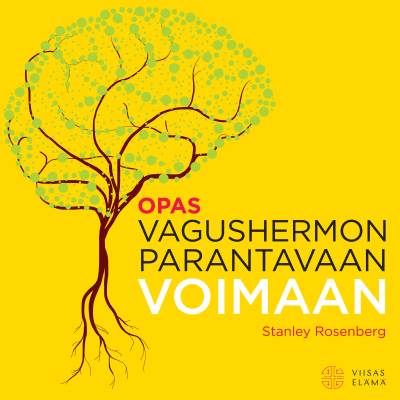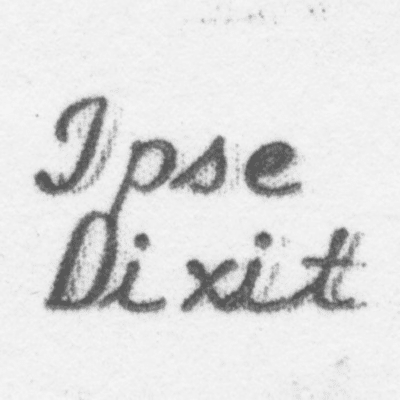
Ipse Dixit
Podcast by CC0/Public Domain
Rajoitettu tarjous
2 kuukautta hintaan 1 €
Sitten 7,99 € / kuukausiPeru milloin tahansa.

Enemmän kuin miljoona kuuntelijaa
Tulet rakastamaan Podimoa, etkä ole ainoa
Arvioitu 4.7 App Storessa
Lisää Ipse Dixit
Ipse Dixit is a podcast on legal scholarship. Each episode of Ipse Dixit features a different guest discussing their scholarship. The podcast also features several special series."From the Archives" consists historical recordings potentially of interest to legal scholars and lawyers."The Homicide Squad" consists of investigations of the true stories behind different murder ballads, as well as examples of how different musicians have interpreted the song over time."The Day Antitrust Died?" is co-hosted with Ramsi Woodcock, Assistant Professor of Law at the University of Kentucky College of Law, and consists of oral histories of the 1974 Airlie House Conference on antitrust law, a pivotal moment in the history of antitrust theory and policy.The hosts of Ipse Dixit are:Brian L. Frye, Spears-Gilbert Associate Professor of Law at the University of Kentucky College of LawLuce Nguyen, a student at Oberlin College and the co-founder of the Oberlin Policy Research Institute, an undergraduate public policy organization based at Oberlin CollegeMaybell Romero, Assistant Professor of Law at Northern Illinois University College of LawAntonia Eliason, Assistant Professor of Law at the University of Mississippi School of LawSaurabh Vishnubhakat, Associate Professor of Law at Texas A&M School of LawJohn Culhane, Professor of Law at Widener University Delaware Law SchoolBenjamin Edwards, Associate Professor of Law at the UNLV William S. Boyd School of LawMatthew Bruckner, Associate Professor of Law at Howard University School of LawComments and suggestions are always welcome at brianlfrye@gmail.com. You can follow the Ipse Dixit on Twitter at @IpseDixitPod. Hosted on Acast. See acast.com/privacy for more information.
Kaikki jaksot
826 jaksotIn this episode, Courtney Cox [https://www.fordham.edu/school-of-law/faculty/directory/full-time/courtney-cox/], Associate Professor of Law at Fordham University School of Law, discusses her new article "Super-Dicta [https://papers.ssrn.com/sol3/papers.cfm?abstract_id=5362244]," which is published in the University of Pennsylvania Law Review. Cox begins by explaining what she means by "super-dicta," then reflects on what the concept can tell us about the judging process and jurisprudence more generally. Here is the abstract: > A weird thing happens when a conscientious, rational judge lacks certainty and has the humility to know it: she will often decide cases for reasons that differ from the reasons in her opinions. To illustrate, suppose she thinks it’s 50/50 whether Defendant’s copying infringed or was fair use. She could rationally flip a coin. But if she does, and she finds for Defendant, it will not be because of fair use. Rather, it will be because she thought it was 50/50 whether the copying was fair use—and the coin landed tails. > Coin-flip cases are rare, but uncertainty is not. There are more sophisticated tools for responding rationally when the judge’s doubts about what she ought to do are not in complete equipoise. And so, the point remains: when a judge is uncertain about what she ought to do and is rational in pursuit of that aim, the actual reason for her decision and the ratio decidendi will diverge. And unlike much of the literature arguing we cannot take opinions at face value, the phenomenon I describe arises from anti-cynical premises: a judge who aims at what is right. > I call the judge’s actual reasoning “Super-Dicta.” Super-Dicta is so-called because it is super important: it is directly necessary to the decision—and not just causally, but as part of a judge’s rationale. But even though it is the decisive reasoning, it would appear to have the status of dicta: whether expressed, or not, Super-Dicta is not purely objective, limited to law or facts. It encompasses the judge’s subjective reasoning based on her uncertainty. That is, it is reasoning that resolves a case that is hard for the judge, not just hard. > Should Super-Dicta appear in an opinion? That normative question is probably moot, at least if understood as one of substantive jurisprudence. While a coin flip may be rational, disclosing it is not. Accordingly, a judge responding rationally to uncertainty will not disclose that in her opinion. And if she tries, the resulting legal standard would turn on an odd consideration: facts about the judge, namely, that she is uncertain and the extent of her doubts. The result: judicial opinions—at least those by mere mortals—can be transparent or objective, but not both. So-called “hard case” doctrines must be revisited in this light. Cox is on Twitter [https://x.com/CoxLaw] and Bluesky [https://bsky.app/profile/coxlaw.bsky.social]. This episode was hosted by Brian L. Frye [http://law.uky.edu/directory/brian-l-frye], Spears-Gilbert Professor of Law at the University of Kentucky College of Law. Frye is on Twitter at @brianlfrye [https://twitter.com/brianlfrye] and on Bluesky at @brianlfrye.bsky.social [https://bsky.app/profile/brianlfrye.bsky.social]. ---------------------------------------- Hosted on Acast. See acast.com/privacy [https://acast.com/privacy] for more information.
In this episode, Saurabh Vishnubhakat [https://cardozo.yu.edu/directory/saurabh-vishnubhakat], Professor of Law and Director of the Intellectual Property and Information Law Program at Cardozo School of Law, discusses his draft article "Constitutional Structure in the Patent Office [https://papers.ssrn.com/sol3/papers.cfm?abstract_id=3988952]." Vishnubhakat begins by explaining how the patent application or "prosecution" process works, how the Patent Office adjudication process is structures, and how Patent Office administrative law judges are appointed. He then explains why the appointment process creates a constitutional problem under the Appointment Clause, based on recent Supreme Court opinions. Finally, he explains how the problem could be solved, and why the solution might improve patent policy and the patent adjudication process. Vishnubhakat is on Twitter [https://x.com/emptydoors] and Bluesky. This episode was hosted by Brian L. Frye [http://law.uky.edu/directory/brian-l-frye], Spears-Gilbert Professor of Law at the University of Kentucky College of Law. Frye is on Twitter at @brianlfrye [https://twitter.com/brianlfrye] and on Bluesky at @brianlfrye.bsky.social [https://bsky.app/profile/brianlfrye.bsky.social]. ---------------------------------------- Hosted on Acast. See acast.com/privacy [https://acast.com/privacy] for more information.
In this episode, Richard Albert [https://law.utexas.edu/faculty/richard-albert/], Hines H. Baker and Thelma Kelley Baker Chair in Law at the University of Texas School of Law, and Kevin Frazier [https://www.linkedin.com/in/kevin-frazier-51811737], AI Innovation & Law Fellow at The University of Texas School of Law, discuss their draft article, "Should AI Write Your Constitution? [https://papers.ssrn.com/sol3/papers.cfm?abstract_id=5351275]" They begin by explaining how much constitution writing and amending in taking place in the world right now, and reflecting on the values that should inform the creation and amendment of constitutions. They describe their survey of international constitution writers, and how it informed their assessment of how AI can and should - and shouldn't! - be used in drafting and amending constitutions. They also provide a set of best practices for using AI in relation to constitutions. Albert is on Twitter [https://x.com/RichardAlbert] and Bluesky [https://bsky.app/profile/richardalbert.bsky.social]. Frazier is also on Twitter [https://x.com/KevinTFrazier] and Bluesky [https://bsky.app/profile/kevintfrazier.bsky.social]. This episode was hosted by Brian L. Frye [http://law.uky.edu/directory/brian-l-frye], Spears-Gilbert Professor of Law at the University of Kentucky College of Law. Frye is on Twitter at @brianlfrye [https://twitter.com/brianlfrye] and on Bluesky at @brianlfrye.bsky.social [https://bsky.app/profile/brianlfrye.bsky.social]. ---------------------------------------- Hosted on Acast. See acast.com/privacy [https://acast.com/privacy] for more information.
In this episode, Laurie Gwen [https://lauriegwenshapiro.com/] Shapiro [https://en.wikipedia.org/wiki/Laurie_Gwen_Shapiro], a writer and filmmaker, discusses her new book, "The Aviator and the Showman: Amelia Earhart, George Putnam, and the Marriage That Made an American Icon [https://www.penguinrandomhouse.com/books/651831/the-aviator-and-the-showman-by-laurie-gwen-shapiro/]," which is published by Viking. Shapiro reflects on the process of researching and writing the book, and shares many fascinating stories and anecdotes about Amelia Earhart's life. She also describes her approach to historical research, and how she managed to uncover so much new information about an American icon. Shapiro is on Twitter [https://x.com/LaurieStories] and Bluesky [https://bsky.app/profile/did:plc:secdubauilx5uvc6dfhd7a7p]. This episode was hosted by Brian L. Frye [http://law.uky.edu/directory/brian-l-frye], Spears-Gilbert Professor of Law at the University of Kentucky College of Law. Frye is on Twitter at @brianlfrye [https://twitter.com/brianlfrye] and on Bluesky at @brianlfrye.bsky.social [https://bsky.app/profile/brianlfrye.bsky.social]. ---------------------------------------- Hosted on Acast. See acast.com/privacy [https://acast.com/privacy] for more information.
In this episode, Jacob M. Schriner-Briggs [https://kentlaw.iit.edu/law/faculty-scholarship/faculty-directory/jacob-m-schriner-briggs], a Visiting Assistant Professor at Chicago-Kent College of Law, discusses his article "Against First Amendment Traditionalism [https://papers.ssrn.com/sol3/papers.cfm?abstract_id=5120669]," which will be published in the Kentucky Law Journal. Schreiner-Briggs begins by observing that the Supreme Court has recently suggested that its "history and tradition" based interpretation of the Second Amendment is also appropriate for interpreting the First Amendment. He explains why such an approach would affect the First Amendment differently from the Second Amendment, potentially increasing the government's ability to regulate politically disfavored favored speech. And he argues that this would be a normatively undesirable outcome, in relationship to pluralist democratic values. Schriner-Briggs is on Bluesky [https://bsky.app/profile/did:plc:cuzv6ldf3j4as5giwx53xuak]. This episode was hosted by Brian L. Frye [http://law.uky.edu/directory/brian-l-frye], Spears-Gilbert Professor of Law at the University of Kentucky College of Law. Frye is on Twitter at @brianlfrye [https://twitter.com/brianlfrye] and on Bluesky at @brianlfrye.bsky.social [https://bsky.app/profile/brianlfrye.bsky.social]. ---------------------------------------- Hosted on Acast. See acast.com/privacy [https://acast.com/privacy] for more information.

Arvioitu 4.7 App Storessa
Rajoitettu tarjous
2 kuukautta hintaan 1 €
Sitten 7,99 € / kuukausiPeru milloin tahansa.
Podimon podcastit
Mainoksista vapaa
Maksuttomat podcastit


